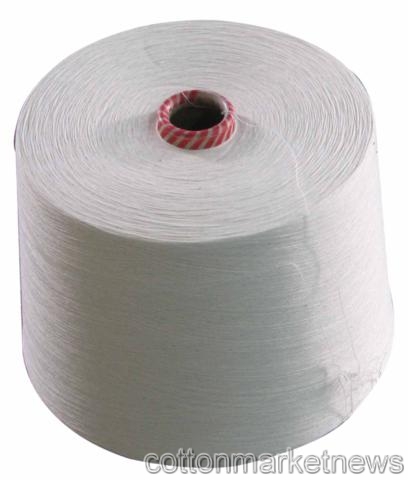Saturday, March 5, 2011
Tight Supplies, High Demand Give Legs to Soft-Commodity Rally
 NEW YORK, cotton commodity coffee reached multi-year highs this week, and new crops are not expected to arrive in time for cool prices in the medium term.
NEW YORK, cotton commodity coffee reached multi-year highs this week, and new crops are not expected to arrive in time for cool prices in the medium term.
The Dow Jones / UBS Commodity Index hit 169,639, its highest intraday level in almost three years, on Friday, the soft commodities markets rose on the heels of a positive U.S. report jobs and a United Nations warning that oil prices could cause a repeat of the peak of 2,008 in food prices.
On Thursday, the Organization of the United Nations Food and Agriculture said its index of food prices rose 2.2% in February, a record in nominal and real terms since the body began tracking prices in 1990.
"It seems that markets are very tight at the moment," Divya said Ramos, an analyst at Eurasia Group. "The harvest season in the coming months will determine how much supply actually come online."
Some analysts have said that supplies of sugar and maize for consumption might be pressed by both crops are used to make biofuels, an alternative to oil. Crude futures have risen more than 6% this week, driven by concerns about oil supplies amid riots in Libya. Futures hit a $ 104.60 a barrel on Friday, the highest since September 2008.
"The fact that about a third of U.S. corn harvest is diverted to biofuel production is not significant from the standpoint of food availability," said Ramos.
limited supplies of crops due to bad weather in growing countries have been largely responsible for driving the prices of commodities. key pressures, along with speculative buying sent prices to record levels in nations from Russia to Myanmar to India to take steps to bolster the food supply for their populations.
Soft cotton rally this week led commodity, reaching a record $ 2. 1270 pound for the benchmark May contract IntercontinentalExchange trade. Cotton prices have more than doubled in the last six months, crops in India, China and Pakistan damaging populations worldwide.
So far, demand has remained strong, but the producers of garments and are passing the costs to consumers with price increases and use of cheaper synthetic fibers.
export sales of U.S. So far this season are more than 41% compared with the same period last year, according to the U.S. Department of Agriculturefigures released this week.
Cotton prices are expected to encourage the planting of the next cropping season. In a report last month, the USDA estimated world cotton production increased to a record 127.5 million bales next season, but said that higher prices also reduce demand.
"It's hard to imagine that the rising prices of retail clothing to compensate for this increase in cotton prices," said Terry Townsend, executive director of the International Cotton Advisory Committee, an association based in Washington that advises governments of producing nations.
It takes about six months for raw cotton is turned into shirts and jeans, ie clothes on the racks are made with cotton that cost less than half the current price.
Arabica coffee reached its highest level since May 1977 Friday, underlying concerns about the availability of quality seeds this season and next year. Coffee for May delivery settled at $ 2.7280 a pound after touching $ 2.7920 in intraday trade.
The International Coffee Organization last month forecast a 9.5% year on year increase in global coffee supply to 134.8 million 60 kg-bags. But rising demand from the world's largest producer, Brazil, may keep prices firm.
"There is a growing middle class and that these economies have expanded," said Enrique Alvarez, analyst at IDEAglobal, referring to emerging markets. "Obviously, that translates into a demand for the quantity and quality of foodstuffs."
Some manifestations of commodity markets are being driven by a single factor, and a vacuum of support could lead to falling prices.
Cocoa prices reached a 32-year high this week as political violence erupted in Ivory Coast, casting further doubt on whether exports are made out of the largest producing country.
Prices have risen 37% since the dispute over Ivory Coast on November 28 elections that sparked the crisis. The internationally recognized president, Alassane Ouattara, has banned exports of cocoa to squeeze rival power holder. The most actively traded contract for delivery in May, hit $ 3,775 a metric ton Friday before settling at $ 3,657 per tonne.
"This year, there is a surplus of 200,000 tonnes," said Drew Geraghty, futures broker ICAP, talking about global supplies. "If the news came that he had lifted the export ban, surely we would instinctive reaction to the downside."
(Source: http://online.wsj.com/article/SB10001424052748703580004576180880091387002.html?mod=googlenews_wsj)

This post was written by: HaMienHoang (admin)
Click on PayPal buttons below to donate money to HaMienHoang:
Follow HaMienHoang on Twitter










0 Responses to “Tight Supplies, High Demand Give Legs to Soft-Commodity Rally”
Post a Comment